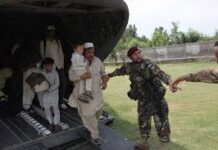Context

The present schism in the region and Iran’s engagement in nuclear talks with the West, allows Israel the opportunity to act without liability against Hamas and Gaza. Although this approach is not without consequences, the direction of the storm brewing in the Middle East can turn at a moments notice. If Israel is not careful, it can become a magnate that attracts the attention of Sunni non-state actors in the region.
As reflected by the loss of Egyptian influence, if other state actors continue to fail towards playing a balanced approach, they too will start to loose relevance. Every time Israel launches aerial bombardments and ground operations and acts with impunity, the Arab and Gulf States appear more and more impotent, leading to more loss of credibility while making peaceful settlement more elusive.
It was the 2009 Gaza blockade that eventually led to 2010 Freedom Flotilla incident and the resurgence of Turkish image as the champion of Muslim causes. This Arab political and social weakness is also linked to the Arab Awakening that got underway in late 2010 and arrived in Egypt in 2011.
Respected Saudi journalist and editor-at-large of Saudi Gazette, Khaled Almaeena, wrote in Al Arabia News recently:
“The Arab masses see images of dead bodies of men, women and children. They observe the total disregard for the sanctity of places of worship and hospitals. They see orphanages being blown to bits. Above all they see the complete paralysis and helplessness of Arab governments which cannot even pressure their so-called friends in the West to ask Israel to stop this aggression.”
Irrespective of the stated aims of the operation Protective Edge, the present crisis will do the same; shift the pendulum even more against regional state actors. Rationally thinking, this could hardly be the strategic aim of Israel in the long-term.
As the Middle East Peace Process lies in impasse, the quandary for Israel is if it would want to negotiate peace with the state actors now, or non-state actors in the future. Obviously, the non-state actors options will not involve a negotiated solution. If the Arab state actors do not live up to their role, Iran and non-state actors will fill that vacuum. Barring a miracle, the ground situation indicates that it may already be too late for the Arab regimes.
Whether its lack of governance, corruption, or war against terror, religious conservatism is increasing across the regional landscape. A trend noted in PoliTact’s forecast. In this environment, attempts to maintain a status quo or reverting to the past models will only lead to more bloodshed. This is what is being witnessed in Egypt, while Saddam loyalist in Iraq and former military figures in Libya, are also attempting to reverse the clock.
In a recent report “Losing Syria and Iraq to Jihadist’ the argument was summed up well by a resident fellow at the Atlantic Council, Faysal Itani:
“When assessing the field of candidates, the United States must also place rebel actions, statements, and beliefs in Syria’s wider social and political contexts. Not all moderate Syrians are secular; not all devout Syrians are Islamists; and not all Islamists pose a threat to the United States.”
A senior associate at the Middle East program of the Carnegie Endowment for International Peace, Frederic Wehrey, puts its this way:
“The most disturbing picture is this introduction of a narrative of a war on terror, that the space for actual opposition is closing and all Islamists of all stripes are being tarred as extremists or jihadists or al-Qaeda.”
The dilemma alluded to above is linked to the fundamental societal transformation that is taking place in the Islamic regions, stratifying it amongst the liberals, moderate Islamists, and extremists. Regardless of the reasons why this is occurring, the balance is shifting towards religious conservatism, which is greatly unnerving for global powers. Especially, when there exists an untested hypothesis that if moderate Islamists were to gain power, they will ultimately join hands with the extremists.
It is this context; the engagement with Iran takes on added emphasis. If a deal over its nuclear program is reached in the near future, it conveys that if properly engaged, even theocracies can act rationally. While this may be true in the short term, the fear remains how this may turn out in the long run.



